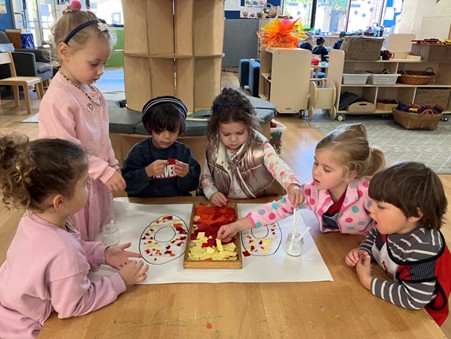
18 May What is it to be “truly free”?
Earlier this week, Edan Alexander, a 21-year-old Israeli-American soldier, was released after 584 days in captivity by Hamas. Edan was captured during the October 7, 2023 attacks while serving in an elite infantry unit. He was forced to endure severe conditions, including torture, being held in a cage with his wrists and ankles tied, starvation and prolonged confinement in underground tunnels. His release has allowed me to feel a sense of hope for, G-d willing, the release of more (hopefully all) of the other 58 hostages (dead or alive) still kept in the clutches of Hamas.
Edan’s ordeal and now, freedom has led me to reflect on the nature of freedom itself. While his physical release from captivity is a cause for celebration, it also underscores the psychological and emotional dimensions of imprisonment. Now that Edan has returned, the scars of his experiences—marked by fear, isolation, and trauma—highlight that true freedom encompasses not only physical liberty but also emotional and psychological well-being.
This complexed and multi-faceted sense of freedom, is particularly pertinent in the context of children’s education. Just as Edan was held captive by external forces, children can be metaphorically imprisoned by their own fears, anxieties, and emotional challenges. These internal constraints can hinder their ability to learn, grow, and fully engage with the world around them.
Educational environments play a crucial role in either reinforcing or alleviating these inner fears and anxiety. A supportive, warm and nurturing environment can empower children to confront and overcome their emotional barriers, fostering resilience and a sense of autonomy. Conversely, environments that neglect emotional well-being can exacerbate feelings of fear and inadequacy, trapping children in cycles of self-doubt and limitation. To further explain this metaphor, in providing environments that nurture both the mind and spirit, we can help children break free from the internal barriers that hold them back, thereby paving the way for a future where they are truly free to learn, grow, and thrive.
Supporting children on their emotional journey through school to obtain a sense of inner freedom requires a multi-layered approach that involves educators, families, and systemic changes to the way we view education. Inner freedom—the ability to think, feel, and act without being paralysed by fear, shame, or internalized limitation—is not something children stumble upon by accident. It is cultivated through consistent, compassionate guidance and intentional practices that prioritize individual children in their emotional development as equal to their academic growth.
First and foremost, emotional literacy must be taught as a core component of education. Just as we teach children to read and write, we must teach them to recognize, name, and navigate their emotions.
Programs that incorporate social-emotional learning (SEL) have shown remarkable benefits—not just in improving classroom behaviour, but in enhancing academic outcomes, reducing anxiety, and helping children build empathy. At Yavneh ELC, we support this by incorporating SEL into daily routines: regular check-ins, classroom discussions about feelings, and intentional curriculum content that includes stories and characters dealing with emotional challenges.
Creating psychologically safe classrooms is another critical step. Children must feel safe not only physically, but emotionally.
A classroom culture where mistakes are seen as part of learning, where diverse identities are respected, and where students are not shamed for expressing vulnerability, creates the kind of environment in which inner freedom can flourish. Teachers play a powerful role in modelling emotional regulation and open communication. When educators show their own humanity—sharing their struggles and demonstrating how they cope—they give children permission to do the same.
Family involvement is also key. Parents and caregivers need to be included in the emotional education process and given resources to support their children at home. Communication between home and school should be two-way, not just reporting on meeting expectations or behaviour, but sharing emotional concerns and successes. When children see that the adults in their lives are unified in supporting their emotional growth, they feel grounded and more secure in expressing themselves.
Furthermore, we pride ourselves on providing our ELC educators the training needed to recognize the signs of emotional distress and trauma. Identifying, managing and supporting symptoms of trauma, has been a focus of our professional development on our dedicated PD teacher days. It was just this month that I completed our 2 year School Readiness Funding (SRF) focus to the Early Childhood Education department which clearly lays out a further 2 years of working though “Trama counselling in Young Children”. We know that many children carry invisible burdens that interfere with their learning—grief, abuse, poverty, post-covid stresses or simply the anxiety that comes from the trying times that we are all currently facing. Understanding trauma-informed practices will help our school become sanctuaries where children are not punished for their pain but gently guided through it.
Finally, we must rethink success. If children are only rewarded for positive behaviours or performance, they may learn to tie their worth to external achievements. Inner freedom comes when children understand that their value is intrinsic, and that their unique path—including their struggles—is worthy of respect and support. Encouraging curiosity, creativity, collaboration, and reflection helps children connect with a deeper sense of self beyond comparison or competition.
In essence, supporting children emotionally is not an “extra” part of education—it is the foundation of a meaningful, empowering learning journey. By nurturing emotional resilience, helping children feel seen and heard, and creating spaces where they can be their full selves, we do more than help them succeed throughout their schooling: we equip them with the tools to live freely, love deeply, and lead with authenticity.
Charlene Orwin




